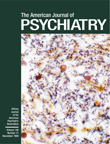Pramipexole Treatment for Cocaine Cravings
Mr. A was a 34-year-old, single, successful businessman who was referred for evaluation of a possible bipolar disorder. He was currently depressed because he had in the previous year brought financial ruin on himself with cocaine freebasing and sexual and other extravagances that had cost him nearly $1 million.Along with current major depression, persistent cocaine cravings but rare use, and a questionable past history of primary or secondary (to substance abuse) mania, he manifested an extraordinary movement disorder with constant restlessness and thrashing of the legs that left his inner knees and thighs bruised and discolored with hematomas in various stages of evolution and resolution. For the restless legs, he had consulted a neurologist who diagnosed preparkinsonism, which is presumed to be secondary to neurological damage from cocaine. The disfiguring movements limited his ability to return to and conduct business.Previously, Mr. A had not responded to or tolerated most of the new generation of antidepressants. Treatment was begun with lamotrigine, up to 200 mg/day, and his mood improved modestly. Because of his severe restless legs and persistent depression, pramipexole treatment was begun, and the dose was titrated to 1.5 mg/day in divided doses.Mr. A’s leg movements quieted substantially, his mood brightened, and he reported the first days in a year in which he awoke without craving cocaine, a benefit sustained for 1 year with pramipexole treatment, combined with 75 mg/day of lamotrigine. During the subsequent year, Mr. A. reported 1 day of noncompliance with his medication regimen when he was out of town overnight without his medication. That night, for the first time, he dreamt about cocaine, and the next day he experienced a renewed craving upon awakening, which disappeared when treatment was restored.Although Mr. A faces an array of financial and business challenges, his mood is nearly euthymic, his leg movements at worst resemble mild restlessness, and his cocaine cravings are abolished.
References
Information & Authors
Information
Published In
History
Authors
Metrics & Citations
Metrics
Citations
Export Citations
If you have the appropriate software installed, you can download article citation data to the citation manager of your choice. Simply select your manager software from the list below and click Download.
For more information or tips please see 'Downloading to a citation manager' in the Help menu.
View Options
View options
PDF/EPUB
View PDF/EPUBGet Access
Login options
Already a subscriber? Access your subscription through your login credentials or your institution for full access to this article.
Personal login Institutional Login Open Athens loginNot a subscriber?
PsychiatryOnline subscription options offer access to the DSM-5-TR® library, books, journals, CME, and patient resources. This all-in-one virtual library provides psychiatrists and mental health professionals with key resources for diagnosis, treatment, research, and professional development.
Need more help? PsychiatryOnline Customer Service may be reached by emailing [email protected] or by calling 800-368-5777 (in the U.S.) or 703-907-7322 (outside the U.S.).

